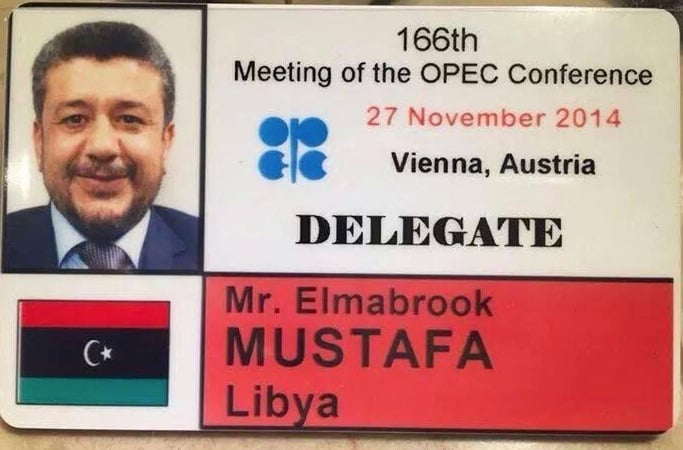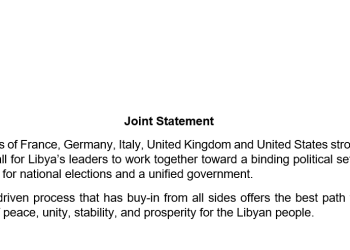By Libya Herald staff.
26 November 2014:
The Libyan government has appointed Al-Mabrook . . .[restrict]Buseif as chairman of the Libyan National Oil Company in addition to his role as head of the national Oil and Gas Board. The move comes just a day before Opec’s summit in Vienna.
Because the government was allowed only ten ministers plus three deputies by the House of Representatves when Abdullah Al-Thinni was appointed Prime Minister, the oil and gas ministry was replaced by a board. Buseif was appointed earlier this month as head of it.
With his appointment now as head of NOC as well as head of the Oil board, it now appears that the government has bowed to calls since the 2011 revolution to merge the former ministry and the NOC into a single organisation.
Moves had already been taken in this direction. Mustafa Sanallah, who became head of the NOC in May in succession to Nuri Berruien, was appointed acting oil minister by Thinni in August. But based in Tripoli, he is seen as linked to the antigovernment of Omar Al-Hassi.
The latter’s oil “minister”, Mashallah Zwai, who was due in Istanbul today, has said that he planned to attend the summit as Libya’s official representative although, unlike Buseif, he had not received an invitation or a visa. If there were no invitation, he threatened, Libya would not abide by OPEC production decisions.
No invitation is likely. OPEC, like the rest of the international community, considers the Hassi administration as illegitimate.
Zwai’s ability to carry out his threat is virtually non-existant. Libya’s current quota is 1.5 million barrels a day. In an interview with Reuters, Zwai claimed Libyan production was just over half the figure: 760,000 b/d.
In reality, however, the real figure is said to be nearer half a million barrels a day. [/restrict]











